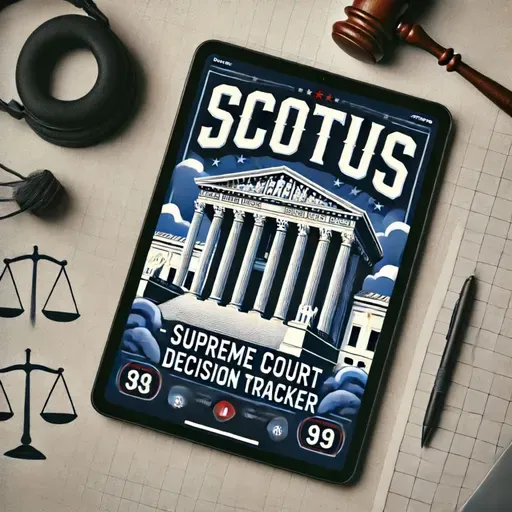
25 August 2025
Supreme Court Decision Allows Trump Administration to Cut $783 Million in NIH Research Grants, Impacting DEI Initiatives
Supreme Court Tracker - SCOTUS News
About
In the latest developments from the US Supreme Court, the major headline centers on a sharply divided 5-4 decision that allows the Trump administration to cut $783 million in National Institutes of Health research grants. This move directly targets projects tied to diversity, equity, and inclusion, aligning with efforts to scale back federal support for DEI initiatives. The ruling overturned a lower court’s order that previously blocked the funding cuts, and while Chief Justice John Roberts joined the court’s three liberal justices in dissent, the majority paved the way for the administration’s priorities to take effect. Justice Neil Gorsuch authored a pointed opinion criticizing lower courts for not consistently adhering to Supreme Court emergency orders, a theme that’s growing in prominence as the high court increasingly intervenes to direct outcomes on its emergency docket.
Justice Amy Coney Barrett provided a crucial swing vote that retains a block on future anti-DEI directives from the administration, preventing new terminations for now, but current grants remain subject to cancellation. Justice Ketanji Brown Jackson’s dissent expressed deep concern about the court’s willingness to bypass ordinary deliberative processes in these emergency settings, warning of adverse consequences for public health and scientific research. According to expert assessment from Inside Higher Ed and the Association of American Medical Colleges, the decision is considered potentially damaging for research continuity and the broader scientific enterprise. It creates significant uncertainty for scientists whose projects may now be abruptly halted, risking years of data collection and progress. Analysts note the fallout could reverberate across the entire US research ecosystem, especially as further legal challenges will now shift to the Court of Federal Claims, which has more restrictive avenues for addressing grant terminations.
Beyond this headline decision, Supreme Court justices continue to express frustration with lower federal courts that have resisted its emergency directives. CNN and legal commentators highlight a growing tension over how lower courts should interpret and apply these expedited orders, some of which come without detailed reasoning and leave trial judges guessing at the intended scope and precedent. The Court has been notably assertive in recent months, siding with the Trump administration in high-profile disputes over federal spending, immigration, and regulatory rollbacks, further cementing its role as a decisive arbiter over executive priorities.
Listeners, thanks for tuning in and don’t forget to subscribe for continuing updates on Supreme Court news and more. This has been a Quiet Please production, for more check out quietplease dot ai.
For more http://www.quietplease.ai
Get the best deals https://amzn.to/3ODvOta
Justice Amy Coney Barrett provided a crucial swing vote that retains a block on future anti-DEI directives from the administration, preventing new terminations for now, but current grants remain subject to cancellation. Justice Ketanji Brown Jackson’s dissent expressed deep concern about the court’s willingness to bypass ordinary deliberative processes in these emergency settings, warning of adverse consequences for public health and scientific research. According to expert assessment from Inside Higher Ed and the Association of American Medical Colleges, the decision is considered potentially damaging for research continuity and the broader scientific enterprise. It creates significant uncertainty for scientists whose projects may now be abruptly halted, risking years of data collection and progress. Analysts note the fallout could reverberate across the entire US research ecosystem, especially as further legal challenges will now shift to the Court of Federal Claims, which has more restrictive avenues for addressing grant terminations.
Beyond this headline decision, Supreme Court justices continue to express frustration with lower federal courts that have resisted its emergency directives. CNN and legal commentators highlight a growing tension over how lower courts should interpret and apply these expedited orders, some of which come without detailed reasoning and leave trial judges guessing at the intended scope and precedent. The Court has been notably assertive in recent months, siding with the Trump administration in high-profile disputes over federal spending, immigration, and regulatory rollbacks, further cementing its role as a decisive arbiter over executive priorities.
Listeners, thanks for tuning in and don’t forget to subscribe for continuing updates on Supreme Court news and more. This has been a Quiet Please production, for more check out quietplease dot ai.
For more http://www.quietplease.ai
Get the best deals https://amzn.to/3ODvOta